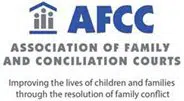

Collaborative Divorce
Most couples know the key points to be negotiated in ending their marriage – co-parenting the children, keeping or selling the house, post-divorce support needed to meet the dependent spouse’s budget – and understand that protracted litigation leading eventually to a trial is not the most efficient means to resolve these disputes! While the law is an important reference point in collaborative divorce negotiations, couples often choose collaborative law because they are aware that a divorce determined strictly by legal principles may result in an outcome that does not serve the post-divorce financial or co-parenting needs of one party or their children, or may not reflect their religious or moral values. With professional support and coaching from lawyers and social workers, even parties who may be struggling emotionally through separation are capable of negotiating durable agreements to restructure their family relationships.
Client-Centered Process
Typically the collaborative process begins with a four-way meeting involving the clients and their Collaborative Lawyers to identify all of the issues either party wants to address in the collaborative process. The parties are coached to state flexible “interests” rather than rigid “positions” for discussion and brainstorming solutions. (For example, the non-custodial parent may desire “increased overnight visitation time with my children” rather than “must have alternating Friday and Saturday overnight visitation with Wednesday dinner”). Once the parties agree on the scope of issues to be discussed the professionals refer the parties for break-out sessions with the professionals best qualified to facilitate their discussions.
Divorce Coaching (Counselors)
Parents may economize in future sessions by working with the coach or coaches without their lawyers to negotiate the details of a Parenting Schedule. The parties may agree to retain a single “coach” (typically a social worker) to mediate emotionality in future discussions, or separate coaches to coach each of them separately how to advocate for themselves more effectively. In some cases the parties may engage a Child Specialist to interview the children and assess their resiliency to various residential custody options and parenting schedules to inform parental negotiations.
Certified Divorce Financial Analyst (CDFA)®
Likewise with regard to financial issues, parents will be referred to work with a neutral financial professional who will study their family’s financial assets, income, household budgets, debt obligations, and risk tolerance. The Financial Neutral will generate various financial scenarios that address the parties’ income requirements consistent with their earnings, and assist the parties in deciding whether to reallocate real property and cash, investment, and/or retirement accounts to equalize their respective marital property interests. This offers a considerable economy as compared with the redundant expense of separate financial experts in contested litigation.
Collaborative Lawyering
Collaborative Lawyers forego tedious formal financial discovery requests typically served in litigation, negotiating instead for the informal exchange of targeted, critical information to permit the parties to make informed evaluations. Collaborative lawyers bring drafting skills to ensure that Parenting Plans are clear and enforceable. At critical points where clients may waive certain legal rights collaborative lawyers educate their clients about their alternatives in litigation.












